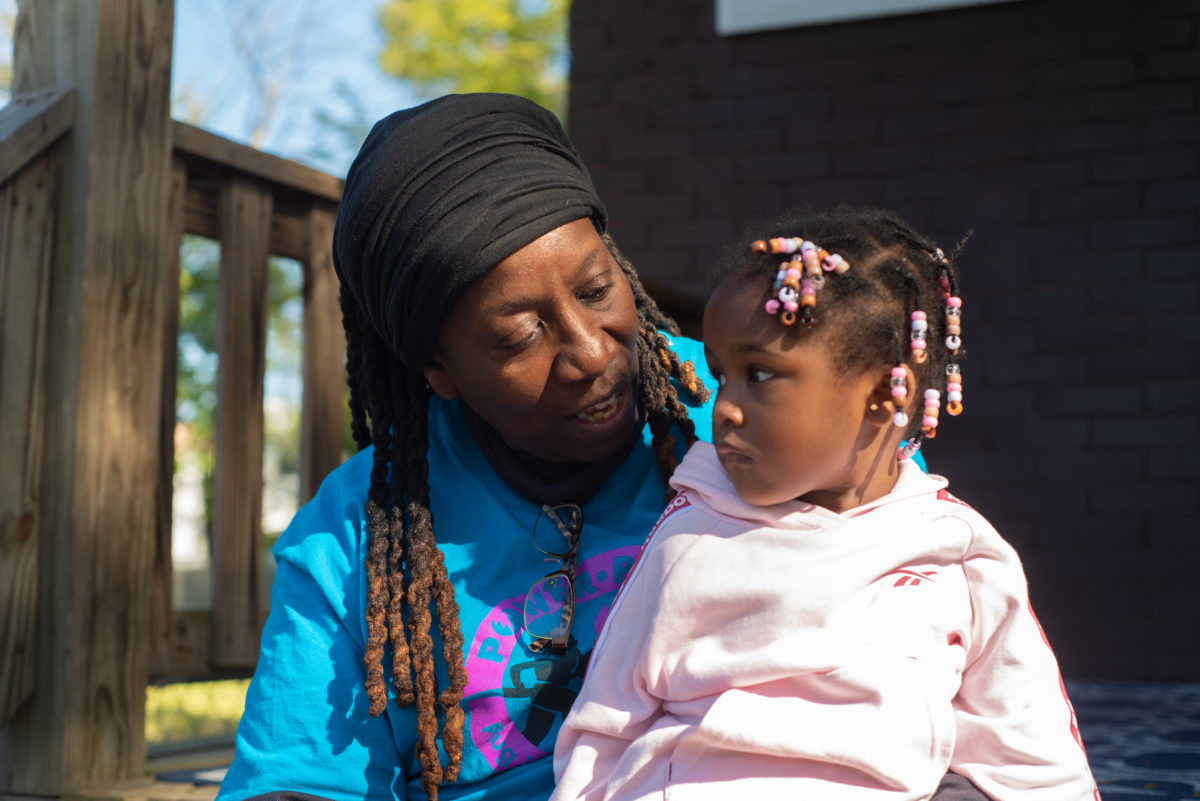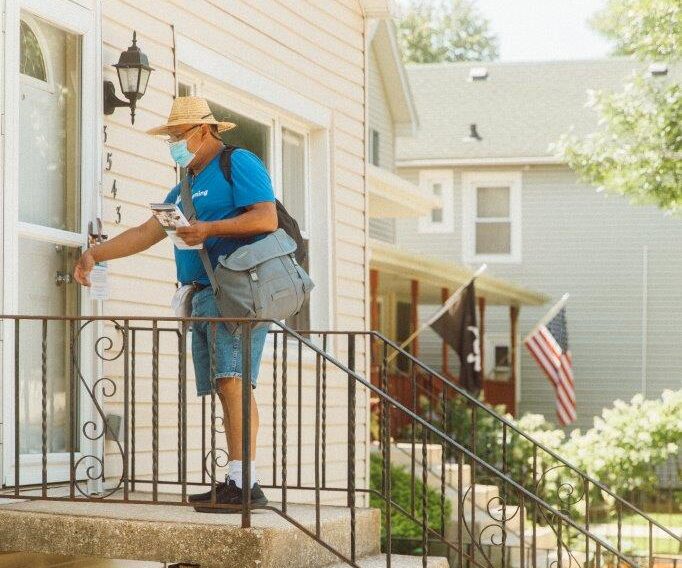Early Learning Campaign
Fighting for universal early learning and care for our youngest generations

In 2007, POWER-PAC leaders launched a new policy and public awareness campaign, the Early Learning Campaign. It focused on overcoming access barriers to quality early learning opportunities for low-income families. Parents formed it after their work on the Elementary Justice Campaign. Despite successfully eliminating punitive, zero-tolerance policies in the Chicago Public Schools discipline code, too many children faced academic failure and discipline issues. Heavily backed by research, POWER-PAC IL leaders believe that achievement gaps are vastly reduced when children participate in high-quality programs early in their lives.
The goal of the Early Learning Campaign is to obtain universal and equitable access to excellent and affordable early care and education, as well as other beneficial programming like early intervention and maternal, infant, and toddler mental health supports for children ages zero to five and their families.
Studies prove that children who access high-quality early childhood education and supports are less likely to need special education, to be involved in juvenile crime, or to drop out of school. These same children are also more likely to participate in post-secondary learning and have higher earnings. In other words, high-quality education and care in the earliest stages of a child’s life greatly increases the likelihood of avoiding the School-to-Prison Pipeline that plagues too many Black and Brown young people in the country.
Major highlights and victories
2024: : Illinois Governor JB Pritzker and the Illinois General Assembly create a new Illinois Department of Early Childhood to help make it easier for parents and guardians to access critical services for young children. POWER-PAC IL parents sounded the alarm about a “confusing and frustrating maze” of early childhood programming in the “Why Isn’t Johnny in Preschool” report from 2009.
2022: POWER-PAC IL leaders successfully advocate for legislation that increases early childhood funding by 10%, extends eligibility for families to receive Early Intervention services, and win the creation of a new Early Intervention “modified service delivery” demonstration project in the State of Illinois. Parents join partners, including the SEIU Child Care Provider’s Union, in launching the Child Care 4 All Campaign in Illinois.
2020: During the COVID-19 pandemic, Early Learning Ambassadors safely and effectively conduct outreach in South and West Side communities in Chicago encouraging parents to enroll their young children in Head Start. They knock on 33,543 doors, speak to 8,399 people, and locate 1,047 children under the age of five – all with zero positive COVID tests among the outreach team!
2017: Statewide parents launch Early Intervention redlining campaign, a pilot project to address and raise awareness for special education services for early learners
2016: Heeding a POWER-PAC recommendation in the “Why Isn’t Johnny in Preschool?” report, the City of Chicago commits to “streamline the maze” of early learning enrollment – often a confusing, burdensome process that creates barriers to enrollment for many families.
2012: COFI/POWER-PAC releases “How We Got Johnny, Jada, and José into Preschool,” a series of policy/practice briefs detailing the philosophy and practices of effective parent-led projects.
2009: COFI/POWER-PAC releases the report “Why Isn’t Johnny in Preschool?” which details the findings of the community conversations and presents recommendations for policy changes to address the obstacles barring so many preschool-eligible children from enrolling. In the same year, COFI wins funding from the City of Chicago to launch the Head Start Ambassador program, a parent-to-parent, door-to-door outreach project to connect low-income families to early childhood resources and programs. This successful project is still going strong today.
2006-2008: In partnership with other community organizations, POWER-PAC parents go door-to-door in 19 low and moderate-income communities to talk with over 5,000 parents and caregivers about why participation in early childhood programs is so low. Leaders also organize community forums that bring parents, educators, and policymakers together to develop recommendations to address access barriers.

Recommendations
- Offer universal child care for low-income families and raise the pay scales for child care providers.
- Provide transportation to get children to and from preschool including van and bus service or creative solutions like Walking Preschool Buses.
- Adjust preschool schedules so they can accommodate family and work schedules.
- Support parent-to-parent outreach to families with the message about the importance of early learning,to help connect them to quality programs and to help families who receive child care subsidies to understand how they can still enroll children in preschool or Head Start.
- Address what parents label “Early Intervention Redlining” which prevents families in too many Black and Brown communities from having access to this critical support
- Simplify the registration process and paperwork, make it more family-friendly, and do not require Social Security numbers, so families can register quickly and easily.
- Fund home-visiting and early care and education programs by creating more slots for children where they are needed and support recruitment efforts where slots are not filled.
Publications and recent news
- “Child care workers, parents urge city to increase child care funding” – Austin Weekly News, October 2023
- “With Federal Funding Ending, Child Care Advocates Warn of Looming Cliff” – WTTW Black Voices, September 2023
- “Black, Brown parents hope to be heard in Springfield on Early Childhood Advocacy Day” – Evanston RoundTable, April 2023
- “Despite promise of universal pre-K for CPS, enrollment lags in city’s neediest areas” – WBEZ, August 2022
- “Fighting for Change in Chicago” – Council for Professional Recognition Newsletter, June 2022
- “Illinois wants parents, educators in the early learning conversation. Advocates say that is long overdue.” – Chalkbeat, December 2021
- “Finding daycare was already a ‘confusing and frustrating maze.’ Coronavirus made it worse.” – USA Today, September 2021
- VIDEO: Parent Changemaker: Fighting for School Buses in One of the Nation’s Most Dangerous Cities – Education Week, February 2020
- “In a struggling Rust Belt city, residents fight to bring pre-K to child care deserts” – NBC News, November 2019
- VIDEO: Parent Changemaker: Helping Meet the Needs of Students with Disabilities – Education Week, January 2018
- COFI/Illinois Action for Children report: “No Decisions About Us, Without Us” (2018)
- POWER-PAC report: “How We Got Johnny, Jada, and José into Preschool” (2012)
- POWER-PAC report: “Why Isn’t Johnny in Preschool?” (2009)
“I’m thinking about my grandchildren and my neighbors’ children. Everyone needs access to quality early learning, regardless of race, immigration status or income.”